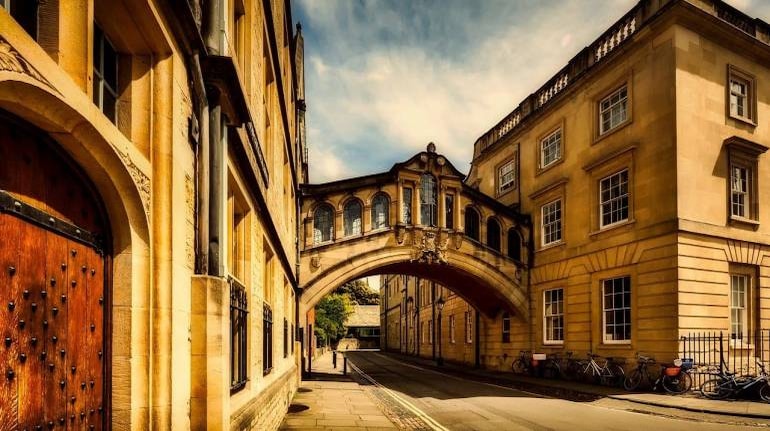http://sharetipsinfo.comJust get registered at Sharetipsinfo and earn positive returns

The effort is part of a brand-building exercise by the Indian government to portray India as an international study destination
Education ministry estimates indicate that on the brink of 200,000 students travel abroad per annum for education, leading to an outflow of just about Rs 50,000 crore ($6.7 billion) per annum.
Don't be surprised if your favourite college or university sets up a campus within us or UK . the govt, under the University Grants Commission (UGC), will now allow colleges and universities to line up offshore campuses abroad.
Sources said that detailed guidelines on the category of institutes, supported academic history, batch size and courses, are going to be released by the govt within the coming weeks.
“This is a component of brand name building of Indian institutes. at the present, India isn't top-of-mind for international candidates, especially from the West, and that we want to vary that,” a politician said.
Once the rules are released, it's likely that an initial list of institutes is going to be involved to measure their interest in fixing campuses abroad.
What does this involve?
The internationalisation of India's education system has been a key focus of the National Education Policy (NEP) – 2020.
Addressing a virtual gathering on July 29, Prime Minister Narendra Modi had said an 'office of international education has been found out at 250-plus universities in India and this may enable them to draw in foreign students.
Education ministry estimates indicate that on the brink of 200,000 students travel abroad per annum for education, leading to an outflow of just about Rs 50,000 crore ($6.7 billion) per annum.
Conversely, it's estimated that 48,000 international students study in institutes across India.
Promoting 'Brand India'
The education ministry wants to market 'Brand India' as a study destination through a mixture of schemes, including global campuses, incentives to foreign institutes to line up Indian campuses, also as 'twinning programmes'.
“Many institutes in India have international alumni who are now employed in large corporations. The institutes are going to be asked to form use of this alumni network as a part of the brand-building exercise,” another government official said.
Once the Indian institutes found out about offshore campuses, they're going to be ready to give international students a teaser of what's on offer. These students would then be encouraged to require up other programmes at the Indian campuses.
Will it work?
While the Indian regulatory agency for universities, the University Grants Commission, will give the go-ahead to line up offshore campuses, the important test would dwell on getting approvals from country-specific regulators.
In us or UK, as an example, new institutes (even offshore campuses) would wish to line aside fixed capital for college kids and infrastructure. an in-depth verification of the institute's financial background, statement of purpose and safety standards is additionally administered .
Prashant Maheshwari, a foreign education consultant based in New Delhi, told Moneycontrol that albeit the Indian government is in a position to secure faster approvals through its diplomatic relations with a rustic, the initial students would primarily be Indian.
“If you check out the US for instance, students are very wary of latest entrants. albeit an Indian institute that features a 100-year legacy sets up an offshore campus within the US, say, in popular locations like NY, Boston, Texas or Atlanta, the initial batches could consist mostly of persons of Indian origin,” he said.
However, unlike former US President Donald Trump, current President Joe Biden is receptive to new educational institutes being found out.
President Joe Biden had stated in February 2021 that he plans to extend grants for brand spanking new and existing education institutes to enhance graduation rates and reduce income disparities.
Here, any educational institute helping improve career outcomes for low-income students, students of colour, first-generation students, and students with disabilities are going to be provided funding.
In the UK, the USP of an institute and whether it's needed within the country is assessed before approval is granted. it's not an easy statement, but 'evidence of need', because the UK government puts it.
This would mean that an Indian institute fixing a UK campus would wish historical evidence of how it's essential for UK residents and the way different its courses would be from those offered by existing higher-education institutes. Final approvals are supported by this data.
The West Africa and East Asia opportunity
Stephen Duraiswamy, the Managing Partner at study-abroad advisory BreakHigh Consulting, explained that rather than aiming for the standard Western markets, Indian institutes looking to expand via offshore campuses should target markets like West Africa and East Asia.
“Places like Ghana, Senegal, Nigeria, Taiwan and Mongolia are where Indian institutes should eye a presence. These regions would enjoy quality international education and that they also are home to an outsized ex-pat community, which can aid brand building for Indian institutes," he added.
Twinning programmes would be a precursor to the present offshore campus expansion. Here, students from India could study one semester at an institute abroad through a partnership and the other way around.
Once the offshore campuses are found out, Indian students in domestic campuses could also get a chance to pursue a neighbourhood of their degree programmes at these international locations.
Get Best Investment Tips, Saving Money Tips